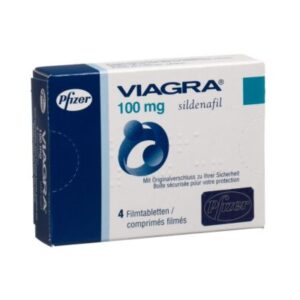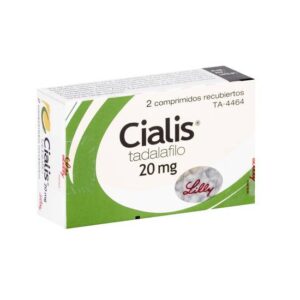Showing all 3 results
What is Erectile Dysfunction?
The term “erectile dysfunction” covers a range of issues, including penile curvature during erection (Peyronie’s disease), prolonged painful erections not associated with sexual desire (priapism), and premature ejaculation. Generally, erectile dysfunction (ED), also known as impotence, is defined as a man’s inability to achieve an erection firm enough for sexual intercourse or to maintain an erection long enough to complete sexual intercourse.
How Common is Erectile Dysfunction?
Erectile dysfunction affects the lives of 20 to 30 million American men and their partners. Although ED is more common in men over 65, it can occur at any age. It’s important to know that an occasional episode of erectile dysfunction happens to most men and is perfectly normal. In fact, in most cases, there is no cause for concern. As men age, it is normal for erectile function to change. Erections may take longer to develop, may not be as rigid, or may require more direct stimulation to be achieved. Men may also notice that orgasms are less intense, ejaculation volume is reduced, and recovery time increases between erections.
The Impact of Persistent Erectile Dysfunction
When erectile dysfunction becomes habitual or persistent, it can harm a man’s self-image and sex life. Erectile dysfunction can also be a sign of a physical or emotional problem that may require treatment. Once a taboo subject, attitudes towards erectile dysfunction are changing as more men seek help for this problem, and doctors better understand the causes of erectile dysfunction and find new and better ways to treat it.
How Many Men Are Affected by Erectile Dysfunction?
It is estimated that 65% of men over 65 suffer from some form of erectile dysfunction. Statistically, the number of men with erectile dysfunction increases with age. However, age alone is not the cause of erectile dysfunction. It’s simply that older men are more likely to suffer from diseases and treatments (such as prostate surgery) that can cause erectile problems.
Causes of Erectile Dysfunction
Many factors contribute to erection and ejaculation. Physical and mental stimuli, hormones, neural transmissions and reactions, muscle contractions and relaxations, and cardiovascular blood flow all work together to create and maintain an erection leading to ejaculation. When one of these processes is disrupted, it can result in erectile dysfunction (ED).
Psychological Causes of Erectile Dysfunction
Psychological causes are based on cultural expectations, mental distractions, personal desires, and sometimes mental illnesses. Psychological causes of erectile dysfunction include:
- Anxiety
- Depression
- Fatigue
- Guilt
- Stress
- Marital difficulties
- Performance anxiety
- Excessive alcohol consumption
Medications for Erectile Dysfunction
There are a wide variety of options for treating erectile dysfunction. Treatment options range from medications to simple mechanical devices, to surgery and psychological counseling. The cause and severity of each individual’s condition are important factors in determining the best treatment or combination of treatments available. It is wise to discuss with your doctor how much you are willing to spend, as well as your personal preferences and those of your partner. If erectile dysfunction results from a medical condition, the cost of treatment may be covered by insurance.
Introduced in 1998, sildenafil (Viagra) is a groundbreaking medication for erectile dysfunction. This drug has become a first-line treatment for men seeking to improve their erectile dysfunction. Today, vardenafil (Levitra) and tadalafil (Cialis) are two other available options.
How Do Viagra, Levitra, and Cialis Work?
Viagra, Levitra, and Cialis all work by enhancing the effects of nitric oxide, a chemical messenger that relaxes the muscles in the penis. By increasing blood flow, a natural sequence occurs—an erection happens in response to sexual stimulation. Rather than producing an erection, these erectile dysfunction medications allow an erection to occur after physical and psychological stimulation.
Which Medication is Best – Levitra, Viagra, or Cialis?
The trio of erectile dysfunction pills that have enabled men around the world to enjoy satisfying sexual and romantic lives—Viagra, Levitra, and Cialis—needs no introduction. Since these products have been on the market, they have become increasingly popular, and it is no wonder, as they have solved one of the most significant and intimate problems a man can face. But which one is the best? Is Levitra more effective than Viagra and Cialis, as some research and user testimonials suggest? Read on to find out.
Levitra, based on an active ingredient called Vardenafil, is one of the most well-known and popular oral prescription medications used to treat erectile dysfunction and impotence in men. It is the latest addition to the erectile dysfunction medication market, having been developed several years after Viagra and Cialis. Vardenafil works similarly to these two: it is a PDE5 enzyme inhibitor that allows sufficient blood flow, a necessary condition for a healthy and strong erection. PDE5, or phosphodiesterase type 5, is a chemical naturally produced by the male human body. Its biological function is to lower the available levels of another chemical important for the process of developing and maintaining an erection, called cGMP (cyclic guanosine monophosphate). cGMP plays a very important role in the physiology of sexual performance, as it facilitates and allows sufficient relaxation of the muscles surrounding the main blood pathways of the penis. Vardenafil increases the production of cGMP, allowing the arteries and other blood vessels in the penis to be sufficiently saturated with blood. This creates a sort of hydraulic effect—a strong, complete, and lasting erection.
Underlying Causes of Erectile Dysfunction
Erectile dysfunction can be caused by many factors and underlying causes, both physical and psychological. Preexisting diseases, such as kidney and liver diseases, pituitary and testicular disorders, are known to negatively affect a man’s ability to produce satisfactory erections. Other factors can also contribute to the onset of this condition, including low levels of testosterone and other important male hormones. Specific lifestyle-related causes, such as unhealthy eating, alcohol abuse, smoking, and recreational drug use, can also be at the root of erectile dysfunction, while the main possible psychological causes are performance anxiety, stress, depression, and emotional disorders. Levitra, like other effective erectile dysfunction medications, is not a cure for these underlying causes of impotence, but it will enable men affected by them to perform sexually despite these causes.
Comparing the Three Most Popular Erectile Dysfunction Medications
When it comes to comparing the three most effective and popular erectile dysfunction medications—Viagra (Sildenafil), Levitra (Vardenafil), and Cialis (Tadalafil)—it is not easy to reach a definitive conclusion. All of these erectile dysfunction medications work in the same way, by inhibiting the PDE5 enzyme, and can produce comparable effects. Of the three, Cialis has the longest-lasting effect, followed closely by Levitra (Vardenafil), and Viagra lags behind. Levitra (Vardenafil) is the newest of the three, but it has already managed to capture a significant market share.


